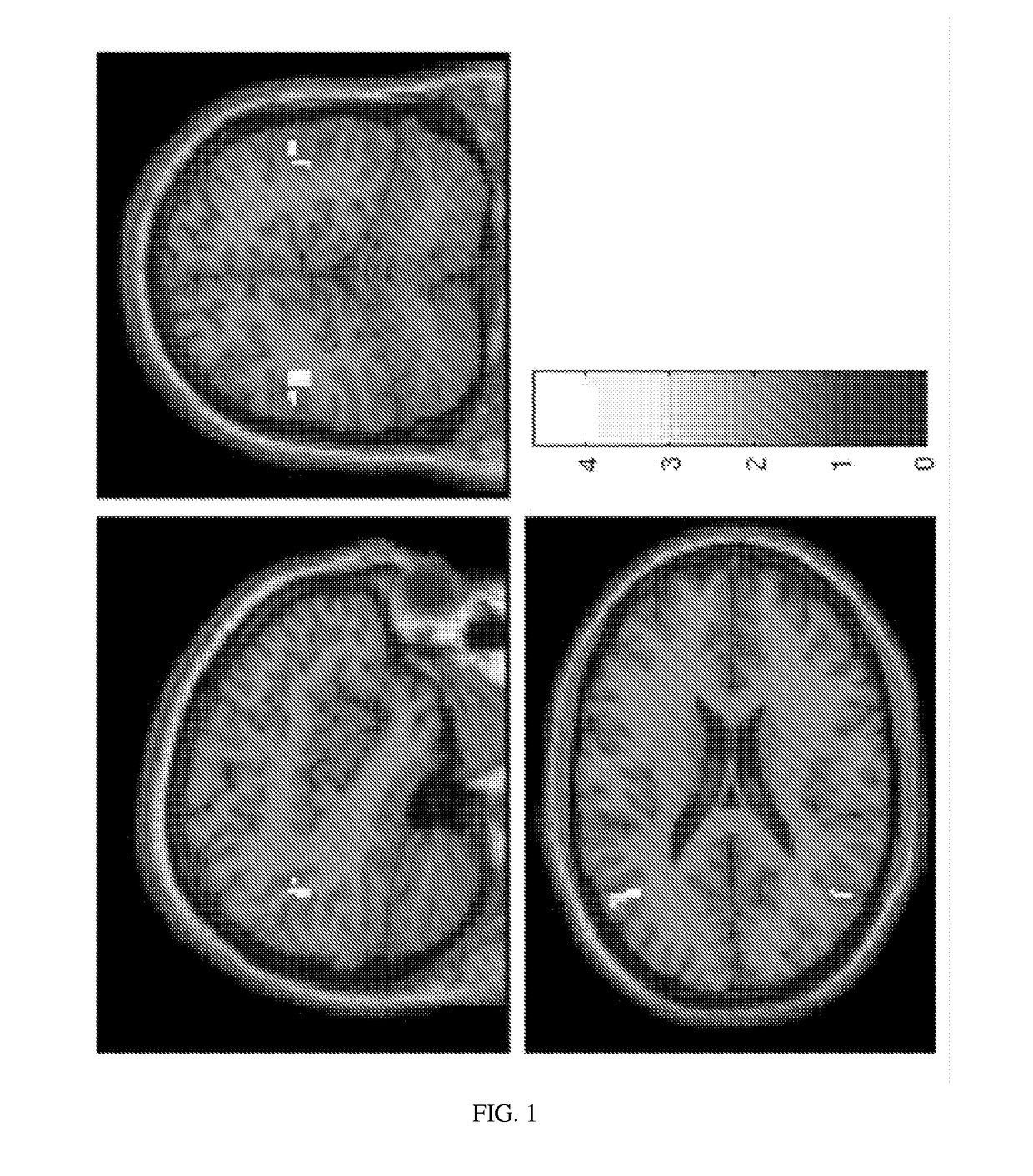Compositions and methods for treating neurodegenerative diseases
a neurodegenerative disease and composition technology, applied in the field of compounds, can solve the problems of blinded treatment studies in hd or long-term follow-up studies of drug therapies for neuropsychiatric aspects of hd, wide range of complexes, and untreated neurodegenerative diseases
- Summary
- Abstract
- Description
- Claims
- Application Information
AI Technical Summary
Benefits of technology
Problems solved by technology
Method used
Image
Examples
examples
Method Examples
Example
[0181]Human vasopression V1a receptor binding assay. A cell line expressing the human V1a receptor in CHO cells (henceforth referred to as the hV1a cell line) was obtained from Dr. Michael Brownstein, NIMH, Bethesda, Md., USA. The hV1a cDNA sequence is described by Thibonnier et al., Journal of Biological Chemistry, 269, 3304-3310 (1994), and the expression method was the same as described by Morel et al. (1992). The hV1a cell line was grown in alpha-MEM with 10% fetal bovine serum and 250 ug / ml G418 (Gibco, Grand Island, N.Y., USA). For competitive binding assay, hV1a cells were plated into 6-well culture plate at 1:10 dilution from a confluency flask, and maintained in culture for at least two days. Culture medium was then removed, cells were washed with 2 ml binding buffer (25 mM Hepes, 0.25% BSA, 1×DMEM, PH=7.0). To each well, 990 μl binding buffer containing 1 nM 3H-AVP was added, and followed by 10 μl series diluted Example compounds dissolved in DMSO. Al...
example 1
[0226](4(S)-phenyloxazolidin-2-on-3-yl)acetyl chloride. A solution of 1.0 equivalent of (4(S)-phenyloxazolidin-2-on-3-yl)acetic acid (Evans, U.S. Pat. No. 4,665,171) and 1.3 equivalent of oxalyl chloride in 200 mL dichloromethane was treated with a catalytic amount of anhydrous dimethylformamide (85 μL / milliequivalent of acetic acid derivative) resulting in vigorous gas evolution. After 45 minutes all gas evolution had ceased and the reaction mixture was concentrated under reduced pressure to provide the title compound as an off-white solid after drying for 2 h under vacuum.
example 1a
[0227](4(R)-phenyloxazolidin-2-on-3-yl)acetyl chloride. Example 1A was prepared following the procedure of Example 1, except that (4(R)-phenyloxazolidin-2-on-3-yl)acetic acid was used instead of (4(S)-phenyloxazolidin-2-on-3-yl)acetic acid (see, Evans & Sjogren, Tetrahedron Lett. 26:3783 (1985)).
PUM
 Login to View More
Login to View More Abstract
Description
Claims
Application Information
 Login to View More
Login to View More - R&D
- Intellectual Property
- Life Sciences
- Materials
- Tech Scout
- Unparalleled Data Quality
- Higher Quality Content
- 60% Fewer Hallucinations
Browse by: Latest US Patents, China's latest patents, Technical Efficacy Thesaurus, Application Domain, Technology Topic, Popular Technical Reports.
© 2025 PatSnap. All rights reserved.Legal|Privacy policy|Modern Slavery Act Transparency Statement|Sitemap|About US| Contact US: help@patsnap.com



